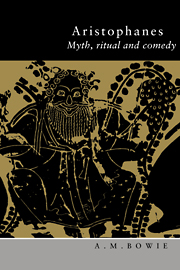Summary
In Beethoven's Fidelio, after the prisoners have been locked away for the night, Leonora, disguised as a young man, descends with the jailer Rocco to the cell where her husband Florestan is imprisoned, in order to help kill and bury him as ordered by Pizarro. As they prepare the tomb, Rocco gives Florestan a little wine, and permits Leonora to give him a piece of bread she has been carrying for two days. Leonora eventually scotches Pizarro's plan, and, in a blaze of light in the prison courtyard, Florestan is recognised for who he is by the Minister; Pizarro is led away and the prisoners receive their freedom.
An anthropologist, seeking to explore the meanings that lie behind or structure such a story, might note the bread and wine and wonder whether this symbolism of the Last Supper is more important than seems to be the case at first sight. Further reflection might prompt a suggestion that one should see in the release of the expiring Florestan something of Christ's harrowing of Hell and resurrection: Christ was in Hell for three days, and this is the third year that Florestan has been in the dungeon. The release of the prisoners will then be the redemption of mankind that follows Christ's triumph over death. Rocco, ‘the rock’, points to St Peter, the rock on whom Christ's church is built, and also the keeper of the keys to heaven.
- Type
- Chapter
- Information
- AristophanesMyth, Ritual and Comedy, pp. 1 - 17Publisher: Cambridge University PressPrint publication year: 1993



